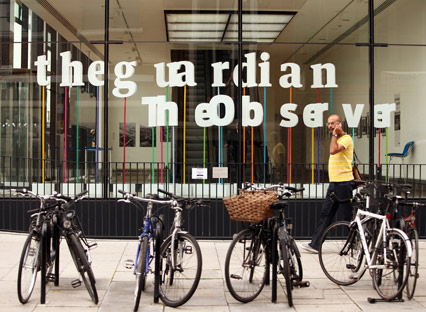Met lightens up – but was Guardian partly to blame?
Talking Point: The Met’s Official Secrets Act threat was ill-advised, but was the Guardian asking for trouble?

A free daily email with the biggest news stories of the day – and the best features from TheWeek.com
You are now subscribed
Your newsletter sign-up was successful
NEWS that Scotland Yard has "decided not to pursue" its legal bid to force the Guardian to reveal the sources it used for stories about phone hacking was welcomed by commentators, but some thought the newspaper was foolish to invite the police into the media’s business in the first place.
Met humiliatedA humiliated Met was forced to retreat from a controversial effort to use the Official Secrets Act against a Guardian reporter, says Ian Dunt on politics.co.uk. The decision came amid "a storm of criticism from MPs", newspapers and online commentators and "marked an embarrassing start to the tenure of new commissioner Bernard Hogan-Howe".
Hoping for revenge Yes, it’s the sort of "screaming, rubber-burning U-turn of an order that takes most holders of public office years to achieve", says Jonathan Freedland in the Guardian. Perhaps the Met was hoping for revenge against the newspaper that dragged its failings into the daylight.
The Week
Escape your echo chamber. Get the facts behind the news, plus analysis from multiple perspectives.

Sign up for The Week's Free Newsletters
From our morning news briefing to a weekly Good News Newsletter, get the best of The Week delivered directly to your inbox.
From our morning news briefing to a weekly Good News Newsletter, get the best of The Week delivered directly to your inbox.
Unfortunately, the Met showed itself to be "not tough on crime, [but] tough on the reporting of crime". However, this attempt to hound reporters has only weakened the Met's reputation further, "entrenching its image as the outsourced security department of News International, jealously guarding that company's secrets and lashing out at those who break them".
Met chief an ‘imbecile’So having deduced that Met chief Bernard Hogan-Howe must have approved this investigation into the Guardian in the first place, and that his motives cannot have been to unite the entire press against him nor to sabotage the force he leads, we can only conclude he is "an imbecile of a very rare order indeed", says Matthew Norman in the Independent. It is no longer a secret, official or otherwise, that the Met has been "saddled with another schtummer", writes Holmes. It isn’t a "three-pipe problem to discern that the only reason not to demand Mr Hogan-Howe's resignation is uncertainty over whether it's technically possible to resign from a job one hasn't yet formally taken up". Guardian’s double standards Aren’t there some double standards at play here, asks Brendan O’Neill in the Daily Telegraph. Sure, the Met’s moves against the Guardian were "profoundly illiberal", but so is the Guardian’s moral rehabilitation of the Regulation of Investigatory Powers Act and its insistence that the police use "this intolerant, intrusive law to invade the offices of tabloid newspapers and feel the collars of tabloid hacks". The Met’s extension of its investigations to encompass the Guardian, says O’Neill, was simply "the ugly end result of having foolishly invited the police in the first place to harry and hector and fix the media".
A free daily email with the biggest news stories of the day – and the best features from TheWeek.com